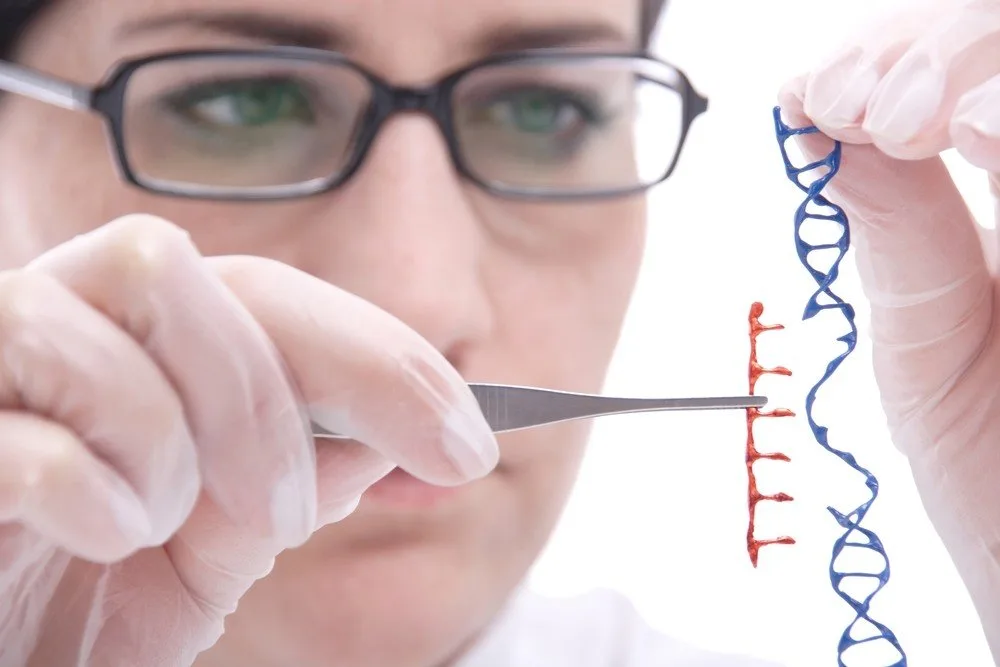This is Longevity Partner Content.
Alcohol use disorder, or alcoholism, is a serious illness that 14.4 million Americans endure (1). It is a complex condition to treat, and there may be several risk factors involved in each case of alcoholism. One of the most important factors is the person’s genetic history. Just like how genetics influence the physical appearance and even the behavior of an individual, they may also influence someone’s predisposition to an alcohol use disorder.
Below are some important facts that you should know about genetics and alcoholism. If you know someone trying to recover from alcohol use disorder, this may help you understand their condition better. You can find more in-depth information about alcohol use disorders, as well as resources for their treatment, at https://betteraddictioncare.com/.
Genetics Aren’t the Only Determinants of Alcoholism—But They Are Worth Considering
Genetics is not the only factor that drives alcoholism. However, most research does show that genes comprise about half the risk of alcohol use disorder. Other factors, like the person’s environment, are at play too.
Thus, a number of things about the person’s background may make them vulnerable to alcoholism. Genetics is just one of these risk factors. But as evidenced below, they’re definitely a factor worth paying attention to.
Several People in the Same Family Tree May Suffer from Alcohol Use Disorder

Natali_ Mis/Shutterstock
It’s not uncommon to see several people in the same family have problems with alcohol. Research indicates that if a person possesses a family history of alcoholism, they may be genetically predisposed to it.
But this, too, depends on several things. The risk is typically higher the closer relatives are to each other in the family tree. Moreover, the environment the person is in also affects their expression of a particular gene. A person with a genetic disposition towards alcoholism may have a higher risk of developing it as compared to someone who does not. But that doesn’t mean that in every case, by default, it’s the former who will develop alcohol use disorder and not the latter.
More Than One Gene Plays a Role in A Person’s Risk for Alcoholism
The individual genes themselves are of interest when they’re studied for their role in alcohol use disorder. A person may carry genes that increase the risk of alcoholism, and in turn, genes that decrease it.
One example of a gene variant that relates to alcohol consumption is the so-called “Asian flush.” This is when some people who are of Asian descent experience a high alcohol metabolism rate. This manifests in a rapid heartbeat and in some cases nausea, as well as flushed skin. Knowing these facts about how genes affect one’s health can increase one’s awareness about their behaviors towards alcohol.
Up to 18 Genetic Variants May Be Related to Heavy Alcohol Consumption, Alcoholism, or Both
Just how many genetic variants may have a role in problems with alcohol? According to the results of a genomic study of almost 275,000 people, done by the University of Pennsylvania School of Medicine, there are about 18.
The Penn Medicine team identified 18 genetic variants that are related to either heavy alcohol consumption, alcohol use disorder, or both. Five of these variants overlapped, while eight were associated solely with heavy alcohol consumption. Another five were traced with alcohol use disorder only.
One finding from the study was that, although heavy drinking is a prerequisite for alcoholism, variants for particular genes may predispose someone towards alcoholism. Examples of gene variants cited by the Penn Medicine researchers are DRD2 and SIX3. This finding is important because identifying these gene variants in a person may help medical professionals better ascertain their risk for alcohol use disorder.
Studying a Person’s Genes May Help Determine the Most Effective Alcohol Use Disorder Treatment
Ultimately, paying attention to the genetic aspect of a person’s alcohol use disorder may contribute to their treatment. There are ongoing studies about patients’ receptiveness to certain medications for treatment, based on their genes.
For example, naltrexone is a drug that’s commonly used to treat dependence on alcohol, as well as opiates. In research cited by the NIAAA, it was found that patients with a specific gene variation responded positively to naltrexone treatment. Those who didn’t have the gene, however, did not. In the future, this kind of information may factor into the accuracy and responsiveness of medical treatment for alcohol addiction.
Conclusion: Unlocking Important New Knowledge about Genetics and Alcohol Addiction
Though the relationship between genes and alcoholism has been under scrutinous scientific study for some time, it isn’t always common knowledge to laymen. But not being able to see the bigger picture of what contributes to alcoholism may allow certain myths about it to prevail. Many people may still believe that alcohol addiction is 100% a personal choice. But as the information above about genetics and alcohol use disorder portray, it’s never that simple.
In any case, whether genes influence someone’s predisposition to alcohol use disorder, no attempt at healing from it is a futile one. Be both compassionate and knowledgeable when approaching the issue of alcoholism—because your support could save a life.

Who is the author?
Monica Mendoza is a digital marketer from the Philippines. She is passionate about living a healthy lifestyle and finding ways to achieve modern comforts sustainably. In her free time, you can find her prepping meals in the kitchen or exploring new running routes in the neighborhood. She also loves traveling




![women [longevity live]](https://longevitylive.com/wp-content/uploads/2020/01/photo-of-women-walking-down-the-street-1116984-100x100.jpg)










